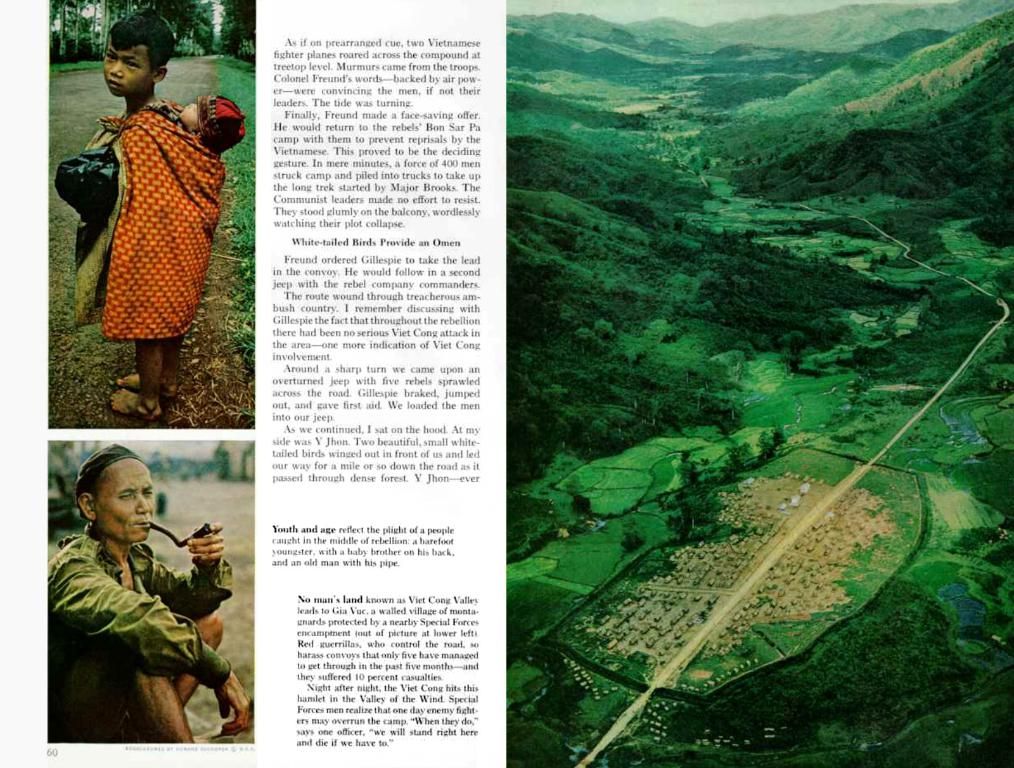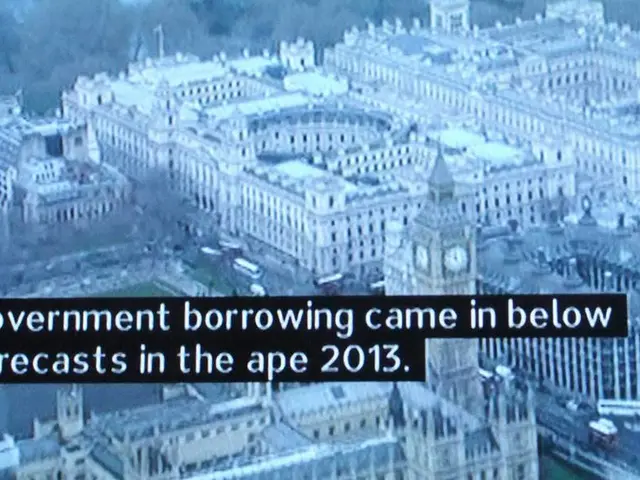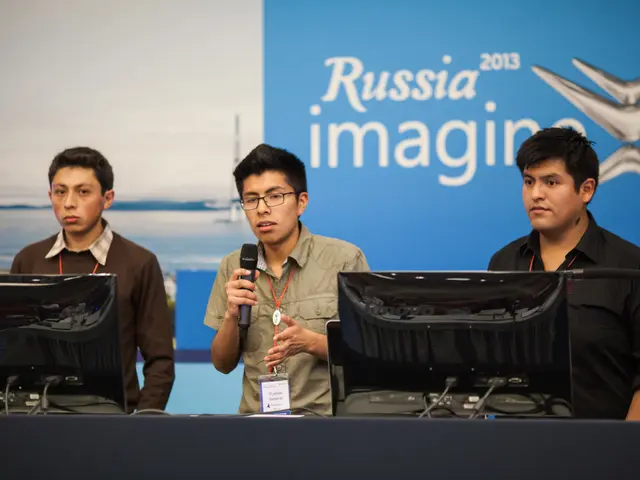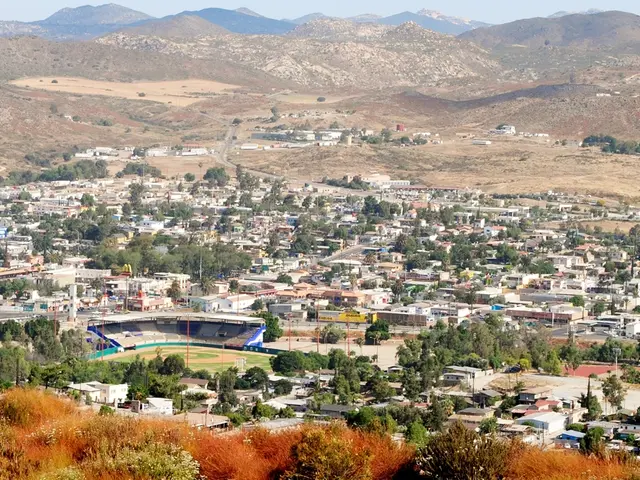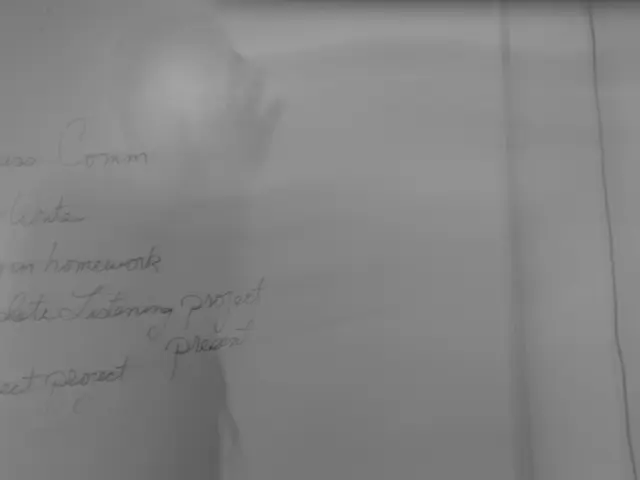Coffee prices are on the rise due to climate change and potential tariffs.
Meet Reneé Colón, a resilient spirit in Rochester, NY. She's the founder of Fuego Coffee Roasters, and with her vibrant purple-and-pink hair swaying, she stands on a stepladder pouring Brazilian coffee beans into her run-down roasting machine. But these beans are precious. A severe drought, followed by an increased demand in Europe, the US, and China, has resulted in a much more expensive cup of coffee.
The Bean Battle
Climate change has long-term consequences, and it's making coffee even more expensive. Unfortunately, coffee production is dwindling, particularly in Brazil and Vietnam, the world's largest growers.
Drought hits Brazil, where an estimated 80% of the crop ended up damaged. Vietnam, too, experiences harsh weather conditions. Despite global production still expected to increase, the dramatic loss of the Brazilian crop has doubled the price of raw beans in just months [1][2].
Rising Prices, Sinking Wallets
The steep increase in the price of coffee beans has put small roasters like Colón in a bind. She's grappling with how much of this higher cost to absorb and pass on to consumers.
For Colón, the dollars spent on these Brazilian beans were $5.50 per pound in early March, more than double their cost in September. Fancier, specialty coffees can cost even more.
But President Donald Trump's 10% tariffs, covering countries such as Brazil, Ethiopia, and Colombia, are expected to exacerbate these rising costs.
Navigating the Tariff Chaos
American coffee roasters are scrambling to rethink their supply chains, learning to live with Trump's erratic tariff announcements. At one point, he threatened 46% tariffs on Vietnam imports and 32% on Indonesia imports, only to pause them later [2].
This uncertainty is straightforward for no one. Colón, seeking to adapt, considers opening her own farm. Yet, rural New York isn't an option. She looks elsewhere, but the increasing risk of hurricanes in Puerto Rico deters her, and labor costs in other regions are too high [1].
A Change in Latitudes
The demand for coffee remains steady. Yet, consumers may notice the escalating prices. Some may balk at the costs, leading to a decrease in demand for premium coffees like Colón's.
Expansion Plans Amid Tumultuous Times
Despite the challenges, Colón is undeterred. She and her husband took out a $50,000 loan to buy a custom coffee roaster from Turkey, tripling capacity. She's striving to increase sales by adding new wholesale clients, selling directly to homes via a fruit-of-the-month-style subscription service, and raising the wholesale price on a pound of roasted beans by 25 cents.
Some find the extra cost alongside the delectable brew a worthy investment, enjoying their coffee as a treat.
Striving for Simplicity Amid Complexity
Small business owners like Colón are grappling with the intricacies of tariffs. They weigh the costs and benefits of importing beans, seeking balance in shifting market dynamics.
But Colón, like many, prefers simplicity over complexity. She's turned down offers for potentially lower-cost imports, fearing tariffs and border delays would outweigh any savings.
[1] Mueller, Nicole, and David Ramli. (2025, 14 Feb) "Rising Coffee Prices: How Climate Change & Tariffs Are Affecting Your Coffee." Wired [online]. Available at: https://www.wired.com/story/climate-change-tariffs-are-raising-the-cost-of-coffee/
[2] Schoenbaum, Todd, and Ben Popper. (2025, 18 Mar) "The Rising Cost of Your Cup of Coffee." The Guardian [online]. Available at: https://www.theguardian.com/global-development/2025/mar/18/the-rising-cost-of-your-cup-of-coffee
[3] Walker, Julie. (2025, 15 Mar) "How Climate Change and Tariffs are Making Coffee More Expensive." NPR [online]. Available at: https://www.npr.org/sections/thesalt/2025/03/15/977951490/how-climate-change-and-tariffs-are-making-coffee-more-expensive
[4] WCR. (2025, 10 Feb) "Climate Change and Coffee: What You Need to Know." World Coffee Research [online]. Available at: https://worldcoffeeresearch.org/climate-coffee/
[5] Taveras, Cristina. (2025, 28 Feb) "Climate-Resilient Coffee: A Necessity for a Sustainable Future." The New York Times [online]. Available at: https://www.nytimes.com/2025/02/28/world/climate-resilient-coffee-sustainable-future.html
- The rise in coffee costs is a result of various factors, including climate change, which has long-term consequences on the environment and economy, making coffee production more expensive.
- The world's largest coffee growers, such as Brazil and Vietnam, have been hit hard by harsh weather conditions like droughts, causing a significant loss in the crop and thus increasing the price of raw beans.
- Small business owners like Reneé Colón are struggling to maintain their operations due to the escalating prices of coffee beans, forcing them to make tough decisions on how much of the increased cost to absorb and pass on to consumers.
- The 10% tariffs imposed by President Donald Trump on coffee-producing countries are expected to further exacerbate the rising costs, causing further inconvenience for small roasters.
- American coffee roasters are rethinking their supply chains in response to Trump's erratic tariff announcements, facing uncertainty and the need to adapt.
- As the demand for coffee remains steady, some consumers may notice the increasing prices and potentially decrease their intake of premium coffees due to the high costs.
- Despite the challenges, entrepreneurs like Reneé Colón are finding creative solutions to expand their businesses, such as investing in new technologies, increasing sales through various channels, and slightly raising the wholesale prices on roasted beans.
- Small business owners like Colón are grappling with the complexities of tariffs, environmental science, and the ever-shifting market dynamics, seeking simplicity amidst the intricacies to make informed decisions for their businesses and personal finances.
